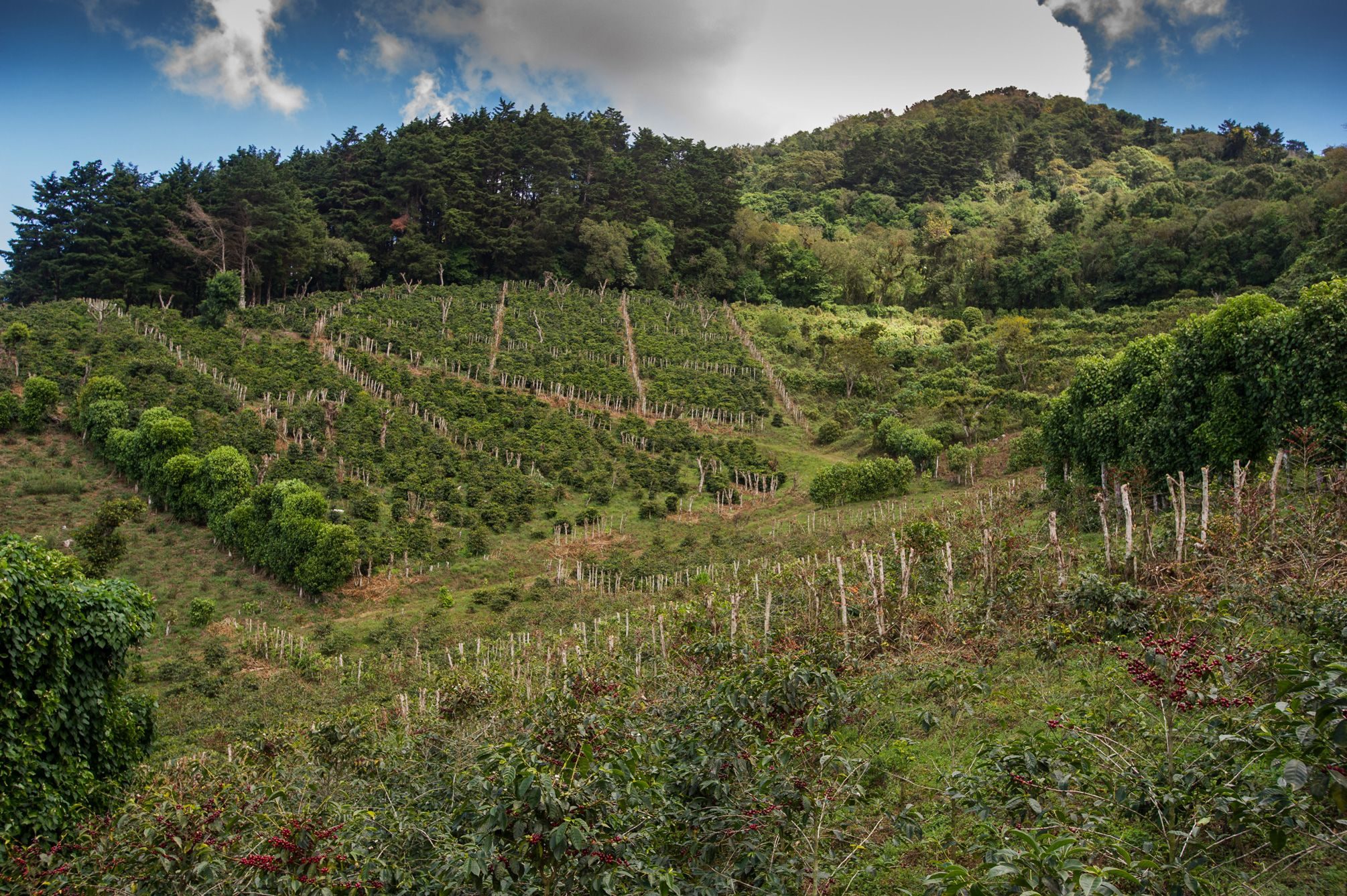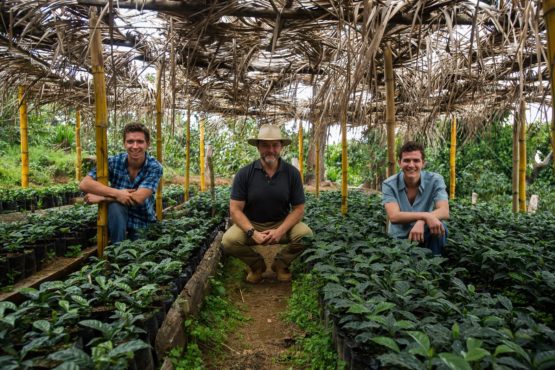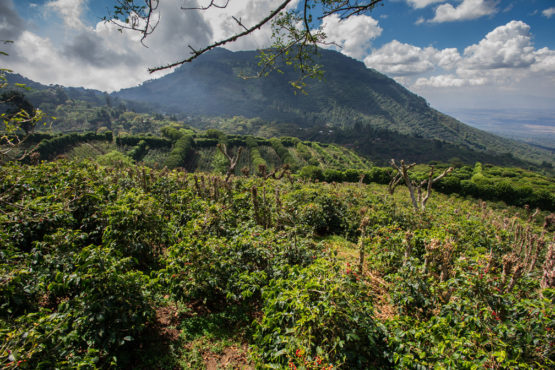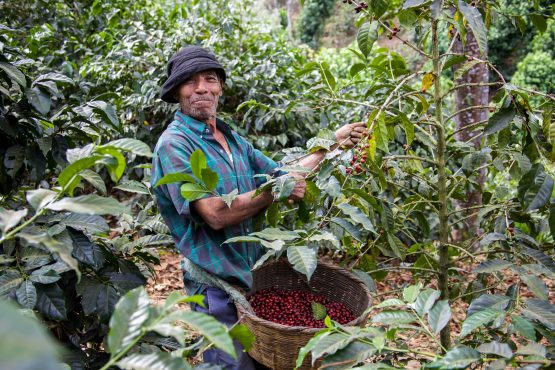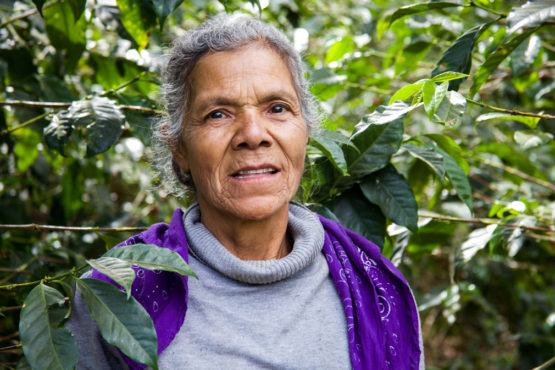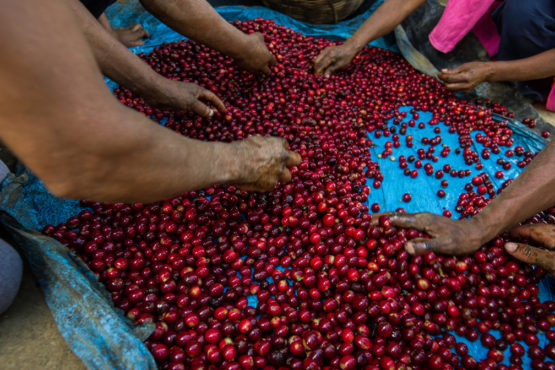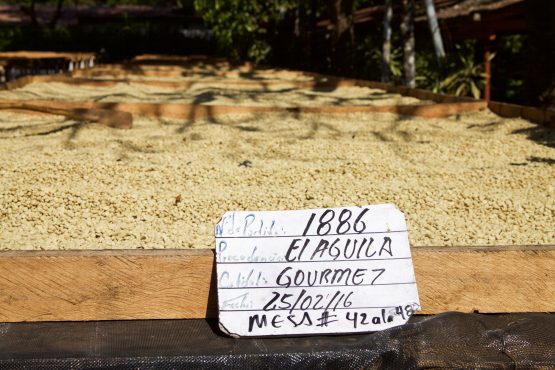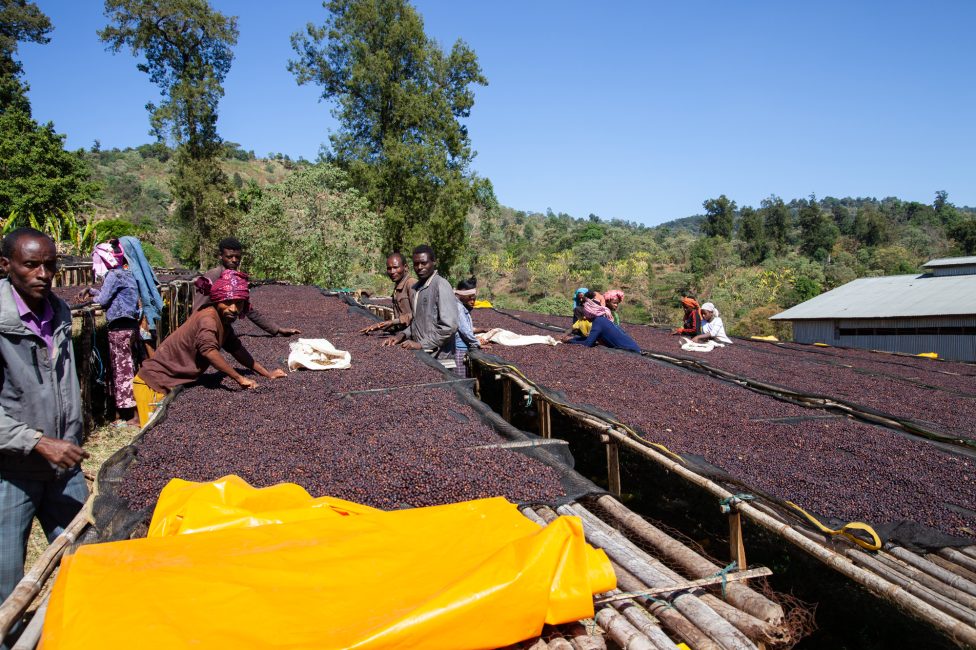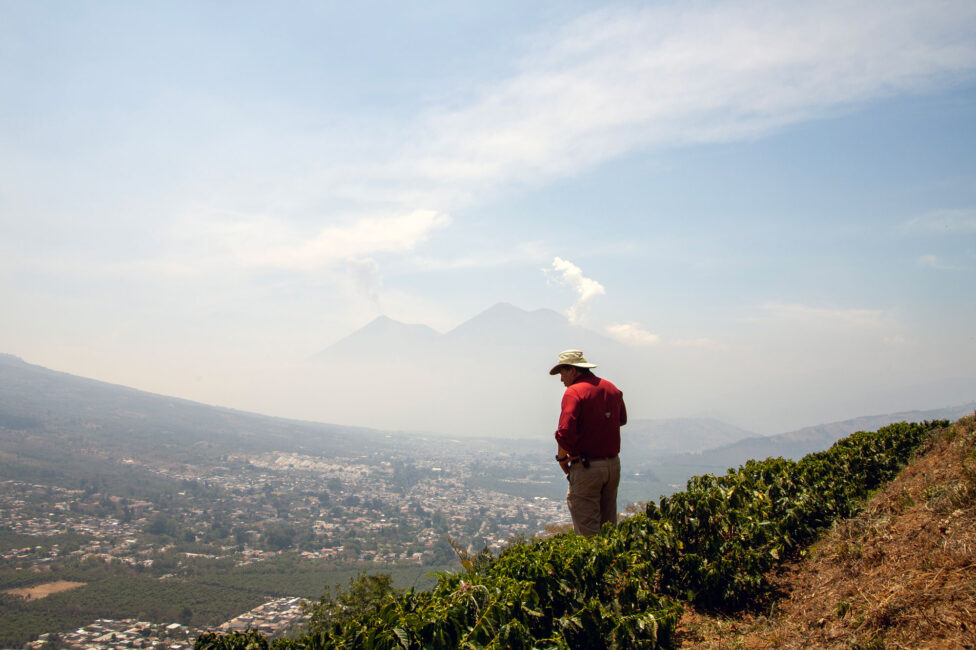El Aguila
Balanced and fruity with caramel sweetness, blackcurrant, and winey acidity. Soft mouthfeel with notes of plum, dark chocolate, and yellow peach.
Finca El Aguila (‘the Eagle’) is located at 1,500m–1,720 above sea level, nestled between the La Ranas and El Aguila volcanoes near the town of Cantón Ojo de Agua, a municipality of Chalchuapa in the Santa Ana department of El Salvador. The farm is 63 hectares in size, 44 of which are planted with coffee, with the rest dedicated to a natural reserve.
Today the farm is run by fifth generation coffee farmer, Ricardo Ariz. Ricardo only recently took over the farm and is relatively new to coffee. He has fond memories of being at El Aguila from an early age with his grandfather, Miguel Angelo, a passionate and curious farmer. “I think we have my grandfather to thank for the good quality varieties on this farm. I don’t think he planted them because they made financial sense, but he loved to try new things.” Ricardo’s grandfather passed away in the late 1960s, and Mauricio, Ricardo’s father, took over the farm. He was very young at the time, having just finished college. Mauricio managed the farm for 15 years until 1980. At this time the Civil War erupted in El Salvador, and the country saw extreme violence for the next 12 years. During ‘The Lost Decade’, the farm was practically abandoned. Mauricio moved Ricardo and the rest of his family to the States, and the farm was managed at arms length via engineers who visited the farm 4 or 5 times a year.
In the 1990s, when the Civil War ended, the Ariz family started to recoup the farm, and hired people to manage it on a daily basis, however the farm’s remoteness and inaccessibility made this difficult. It was not really until 2010, after the passing of Ricardo’s 88-year-old grandmother, that the family decided to actively invest and manage the property.
It was at this time that Mauricio (who had built up a successful business in the US and had no intention of returning to El Salvador) approached Ricardo to run the farm. Ricardo, who has a Masters in Economics and Finance and had spent most of his adult life in venture capital reflects, “Before taking over the farm, I didn’t really even drink coffee. But when I took it over, I started making an effort to taste different coffees, learn how to cup and understand the industry. And as I did, I developed a real interest in the farm and a real liking for coffee. I attended the SCAA and started meeting with people from the specialty coffee industry and I learned I lot from them.”
Since taking over the management of El Aguila, Ricardo has surrounded himself with a strong team of experts who have helped him ensure that they engage with the best possible farming practices on the farm. “I tried to find the brightest people who are the most committed to working here.” He now has a team of seven full time employees, including a full time agronomist, and is encouraging his two sons to join him on the farm.
Ricardo admits that when he first took on the management of the farm, it was because he felt like ‘it was his time to bat’. But it has been through his relationships with his staff and the surrounding community that Ricardo has found his love for coffee and his newfound profession. “I’ve found a passion for coffee — it’s something that has really turned me on, and its not for its financial rewards — it’s more of a spiritual thing,” he explained to us on the long winding drive up to El Aguila.
“I’ve realised that if people like me choose not to run farms, it really doesn’t give the local community a chance to show the world what they can do. So I see myself as part of a team, and together we can do good things and create something that people are proud of. This is the aspect of running a coffee farm that I enjoy the most.”
He explained, “It’s been self-fulfilling, because the minute the workers realised that I was actually committed to improving the farm and their lifestyle, and understanding that we were going to grow, and why, we started discovering a lot of things together.” Ricardo employs 60 seaonal workers during the harvest to help with harvesting the coffee trees, and most of these staff are the same every year and have worked on the farm for decades, like Luciano Carranza below.
Ricardo’s staff have helped him build an inventory of what is growing on the farm. In total they have discovered seven unique varieties on the farm which they have been gradually separating and testing for their cup quality, resilience and yield. Of the seven, they have found three that are commercially viable—(i.e. they cup well and produce enough coffee). In addition to these varieties, the plantation has mainly Bourbon planted throughout it (around 80% of the plantation), and some small plots of SL-28, SL-34, Pacamara, Yellow Caturra and Geisha. Ricardo and his team are now working out the best places on the farm to plant each variety so that it thrives. “Sometimes I feel like we are stitching a quilt,” Ricardo explained as he took us around the farm.
Ricardo and his team plant around 8500 trees per year. Trial and error has seen them gradually find the optimal places to grow each variety, and armed with this knowledge, Ricardo is gradually mapping out a long-term plan for the farm. Planting new varieties has become a priority, especially those that appear to be unique to the farm.
Ricardo admits that the quality of El Aguila’s cup is largely due to the unique microclimate of the farm. With a high altitude, rich volcanic soil, plenty of rainfall and temperatures of 18–24 degrees Celsius, the farm has the perfect conditions to produce exceptional coffee. Throughout the farm, Ingas and Copalchi have been planted to provide shade and protect the coffee trees from direct harsh sunlight during the peak of the harvest. Fertilisation is only performed after careful soil analysis by the farm’s agronomist, and weed control is performed manually to avoid the use of herbicides. Other practices on the farm include erosion control using vegetative barriers, and the composting of pruned branches to create more organic matter for the farm.
We have been buying from El Aguila since 2012, and we have a huge amount of respect for Ricardo. The two things that resonate that most with us are his passion, and his fierce commitment to quality and doing things well. His intimacy with the farm and understanding of what is required to produce exceptional coffee is remarkable. But it is Ricardo’s commitment to the community that we find the most inspiring. In addition to employing local community members on the farm, the Ariz family also supports the Ojo de Agua community with workers and materials to maintain two access roads, as well as providing a water supply to the community from their water reservoirs. It is hoped that in the coming years they will be able to facilitate access to electricity for this community as well.
This particular lot that we have purchased from Ricardo is 100% Bourbon. It was carefully handpicked under the supervision of the farm’s manager, Antonio, who ensured only the very ripest cherries were selected. It was then delivered to the mill at El Carmen, where it was pulped and fermented for 18 hours, and then washed and dried on patios in the sun for 16 days.
